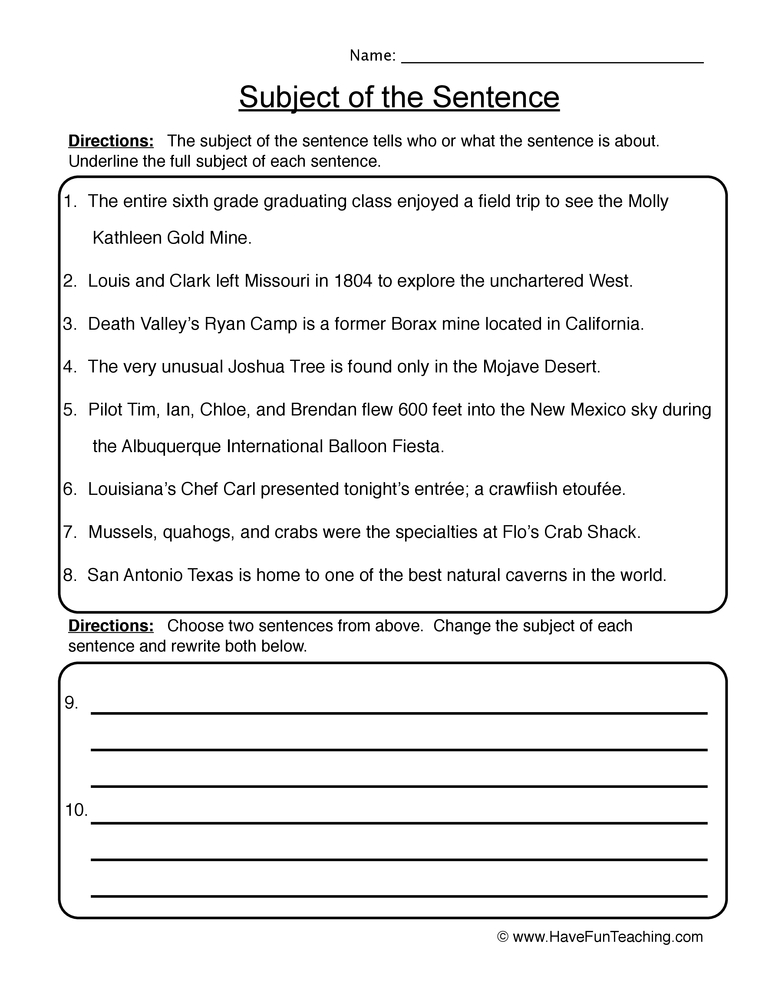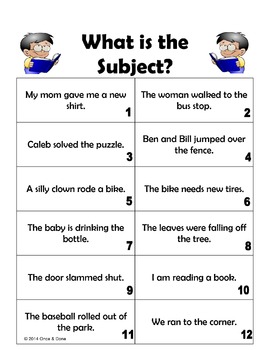

We can remove the kid from down the street to find that the simple subject is just Bobby. There is a lot of information attached to that subject that is not necessary for the grammatical integrity of the sentence. So the complete subject in the above sentence is Bobby, the kid from down the street.

The complete subject includes all of the words to the left of was. Each of those words is essential to the simple predicate and neither can be removed. The helping verb was is working with the -ing verb walking to express the time that this event happened. Yet the simple predicate cannot be reduced past was walking. The complete predicate in this sentence includes the prepositional phrase "through the park." That makes the complete predicate in the above sentence was walking through the park. In this case we have the verb phrase was walking.

Verb phrases cannot be reduced beyond the helping verb and the main verb, such as in the following example:īobby, the kid from down the street, was walking through the park.Īgain, I always start my analysis by finding the action. That doesn't mean that every sentence can be reduced to just two words though. It has a subject and a predicate and it expresses a complete thought. In the above example, that is " I ran." Yes, that is a complete sentence.

When we reduce a sentence or clause to its simple subject and simple predicate, we will be left with the smallest possible unit that still makes grammatical sense. Since there are no modifying words or phrases in the above example, our simple subject and complete subject are the same: I. The complete subject includes noun or pronoun that takes the action (our simple subject) as well as all modifying words and phrases. The simple predicate in the above sentence is ran. The simple predicate is just the main verb, isolated in its most simple form. So the complete predicate in the above sentence is quickly ran from the red-eyed cat. A complete predicate is the main verb in the clause and all the attached modifiers and objects that complete the clause. The word quickly is also attached to the predicate ran. The predicate in the above sentence is ran. When I am analyzing the structure of a sentence, the first thing I do is find the actions or predicates.


 0 kommentar(er)
0 kommentar(er)
